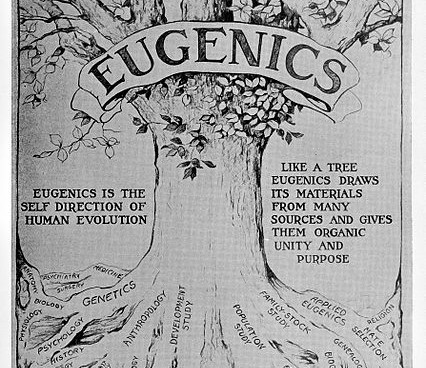Eugenics Was Wrong Even When It Got It Right
By Maren Linett,
Nursing Clio
| 01. 17. 2023
Ann Leary’s 2022 novel The Foundling follows a young white woman, Mary Engle, who in the 1930s lands a job as secretary to Dr. Agnes Vogel. The fictional Dr. Vogel is the founder and director of the Nettleton State Village for Feebleminded Women of Childbearing Age, an institution based on many real-life institutions, including one where Leary’s grandmother once worked. Nettleton State Village is meant to incarcerate “feebleminded” girls and women from puberty to menopause in order to prevent “defective” offspring. The Foundling offers a sharp critique of Nettleton State Village and by implication, its real-life counterparts. As the novel shows, many of the women locked up in eugenics institutions were not actually intellectually disabled, and Leary alerts readers to this ahead of time in her author’s note. The novel ascribes the presence of nondisabled women in the institution to three causes: the sexism, racism, and corruption of eugenic practice.
Leary uses the character of Lillian, a childhood friend of Mary’s, to demonstrate eugenics’ intertwined racism and sexism. Lillian—whom Mary grew up with in a Catholic orphanage—is incarcerated at Nettleton...
Related Articles
By Evelina Johansson Wilén, Jacobin | 01.18.2026
In her book The Argonauts, Maggie Nelson describes pregnancy as an experience marked by a peculiar duality. On the one hand, it is deeply transformative, bodily alien, sometimes almost incomprehensible to the person undergoing it. On the other hand...
By Michael Rossi, The Los Angeles Review of Books | 01.11.2026
This is the 10th installment in the Legacies of Eugenics series, which features essays by leading thinkers devoted to exploring the history of eugenics and the ways it shapes our present. The series is organized by Osagie K. Obasogie in...
Alice Wong, founder of the Disability Visibility Project, MacArthur Genius, liberationist, storyteller, writer, and friend of CGS, died on November 14. Alice shone a bright light on pervasive ableism in our society. She articulated how people with disabilities are limited not by an inability to do things but by systemic segregation and discrimination, the de-prioritization of accessibility, and the devaluation of their lives.
We at CGS learned so much from Alice about disability justice, which goes beyond rights...
By Gregory Laub and Hannah Glaser, MedPage Today | 08.07.2025
In this MedPage Today interview, Leigh Turner, PhD, a professor of health policy and bioethics at the University of California Irvine, unpacks the growing influence of stem cell clinics and the blurred line between medicine and marketing. He explains how...




